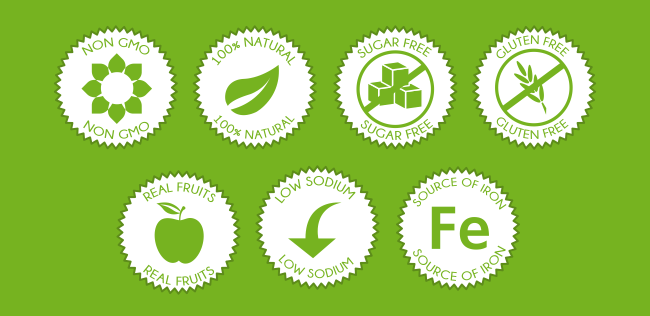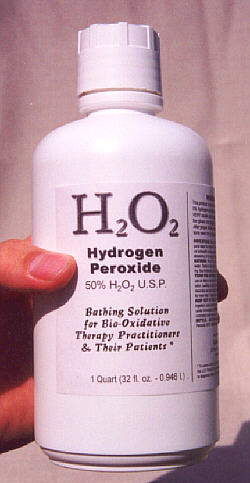38 health claims food labels
Health Claims on Food Labels - LabelCalc Health claims, according to the FDA, are statements about the relationship between a food product or ingredient and a reduced risk of disease or a health condition. Basically, the FDA distinguishes two kinds of health claims: "authorized" and "qualified.". Authorized Health Claims: Claims that have significant scientific agreement (SSA). Label Claims for Conventional Foods and Dietary Supplements the nutrition labeling and education act of 1990 (nlea) provides for the use in food labeling of health claims that characterize a relationship between a food, a food component, or dietary...
› how-to-read-food-labelsHow to read food labels | healthdirect Energy: A kilojoule is a measure of energy. To lose weight, you need to eat and drink fewer kilojoules (kJ) than you use. You should limit your intake of discretionary or junk foods — i.e. those that have more than 600kJ per serve.

Health claims food labels
General health claims - Health claims on food labels ... Health claims on food labels General health claims Conditions of use for general health claims Use of the terms "nutritious" and "healthy" Weight loss claims vs. weight maintenance claims General health claims are broad claims that promote health through healthy eating or that provide dietary guidance. Health Claims on Food Labels | LegalMatch In other words, a health claim can be a label on a product that says how the food is beneficial in helping to prevent or treat some kind of health condition. For example, your orange juice container may have a health claim on it about how the number of servings of orange juice each day can help reduce the risk of heart disease. Health claims: what they mean - Canada.ca Health claims: what they mean To make a health claim about potassium, sodium and reduced risk of high blood pressure, the food... must be low in (or free of) sodium may also be high in potassium must be low in saturated fatty acids must be limited in alcohol must have more than 40 Calories if the food is not a vegetable or a fruit
Health claims food labels. Health Claims on Food Labels - Consumer Reports Health Claims on Food Labels: What's True, What Isn't A guide to what 'natural,' 'multigrain,' 'free-range,' and more really mean By Sally Wadyka January 07, 2019 R eading the information on food... › food-labelling › health-claimsHealth Claims - Canada.ca The Food Directorate assesses whether health claims are truthful and not misleading by reviewing mandatory and voluntary pre-market submissions. Decisions about health claims which are based on Health Canada reviews are available on this website. Depending on the novelty of the substance that is the subject of the health claim, the food product ... Food labelling and packaging: Nutrition, health claims and ... Organic food Nutrition, health claims and supplement labelling Nutrition labelling You must follow nutrition labelling information rules for all pre-packed products unless both of the following... Regulating health claims on food labels using nutrient ... Objective: Proposed Australian regulation of claims on food labels includes requirements for products carrying a health claim to meet nutrient profiling criteria. This would not apply to nutrition content claims. The present study investigated the number and healthiness of products carrying claims and the impact of the proposed regulation.
› nutritionsource › food-labelUnderstanding Food Labels | The Nutrition Source | Harvard T ... The FDA has approved 12 health claims on food labels such as the relationship between calcium and osteoporosis; sodium and hypertension; fiber-containing grains, fruits and vegetables and cancer; and folic acid and neural tube defects. However, just because a food contains a specific nutrient that is associated with a decreased risk of disease ... Introduction to Food Product Claims — FDA Reader A Qualified Health Claim is a statement approved by the FDA for use on food labels that has strict wording requirements. When there is emerging evidence between a food and the reduced risk of a disease or health condition, but not enough for the FDA to issue an Authorized Health Claim, the FDA may approve a "Qualified Health Claim". kidshealth.org › en › teensFood Labels (for Teens) - Nemours KidsHealth Some food labels also state which country the food came from, whether the food is organic, and certain health claims. In the United States, the Food and Drug Administration (FDA) and the Department of Agriculture (USDA) also regulate any health claims that companies make on their food labels. When a food says “healthy,” "light" ("lite"), or ... PDF Health Claims in Food Advertising and Labeling Moreover, health claim advertising and labeling is product-specific so that advertising and labeling not only indicate the relationship between food characteristics and health, but also prominently feature a product that contains these characteristics. 194 • USDA/ERS AIB-750 • Health Claims 1978 1984 1986 0 10 20 30 40 Some college HS graduate
What You Need to Know About Health Claims on Food Labels ... In general, health claims are statements made on food product labels or dietary supplements that boast some type of health benefit. This may seem simple, but the FDA doesn't treat every claim the same way. Label claims come in multiple forms: Health claims (which comprise of authorized health claims and qualified health claims) › regulatory-information › search-fdaSmall Entity Compliance Guide: Trans Fatty Acids in Nutrition ... This Small Entity Compliance Guide restates in plain language the final rule on the “Food Labeling: Trans Fatty Acids in Nutrition Labeling, Nutrient Content Claims, and Health Claims (68 FR ... Nutrition claims - Food Safety A claim that a food is high in vitamins and/or minerals, and any claim likely to have the same meaning for the consumer, may only be made where the product contains at least twice the value of 'source of [NAME OF VITAMIN/S] and/or [NAME OF MINERAL/S]'. CONTAINS [NAME OF THE NUTRIENT OR OTHER SUBSTANCE] Nutrient Content Claim vs Health Claim - LabelCalc Experienced food manufacturers know just how much work can go into including a nutrient content claim or health claim on their food product's label. But for those just starting out in the industry, there's a lot of confusion about the difference between the two types of claims, not to mention the FDA guidelines for each.
Questions and Answers on Health Claims in Food Labeling Health claims in food labeling are claims that have been reviewed by FDA and are allowed on food products to show that a food or food component may reduce the risk of a disease or a health-related...
Health Claims on Food Labels | Cigna Food makers can make health claims about certain nutrients, such as calcium, fiber, and fat, that are found naturally in foods. The health claims must be balanced and based on current, reliable scientific studies. And the claims must be approved by the U.S. Food and Drug Administration (FDA). Health claims may be...
Nutrition content claims and health claims - Food Standards Health claims are about the relationship between a food and health effects. All health claims must be supported by scientific evidence. Health claims are only permitted on foods that meet the Nutrient Profiling Scoring Criterion (NPSC). For example, the Standard doesn't allow health claims on foods higher in saturated fat, sugar or salt.
Food Packaging Claims | American Heart Association There are three categories of claims defined by statute and/or FDA regulations that can be used on food and dietary supplement labels: health claims, nutrient content claims, and; structure/function claims. A "health claim" by definition has two essential components: A substance (whether a food, food component, or dietary ingredient) and
Nutrient Claims And Health Claims On Food Labels Health claims on food labels are strictly regulated so as to not give off the appearance of an item containing health benefits for which it has not been tested. Health claims examples may include things like stating that a product can cure or reverse a specific health condition or that a food item or supplement improves a health condition.
Health Claims on Food Labels: What is Healthwashing? | 8fit A beneficial intention, but the problem is that these health claims on food labels can be misleading. Health claims on food labels can be classified into three categories: functional, general health, and nutrient content guidance. Functional includes how the food works on the body, such as fiber for the promotion of bowel regularity.

Poll Reveals Americans Are No Longer Buying Into Health Claims On Food Labels - Top 10 Meal ...
What are some examples of an FDA health claim on a food label? Furthermore, what are health claims on food labels give three examples? A diet low in total fat may reduce the risk of some cancers." But just because a food label has a health claim does not mean that the food is healthy for you. For example, a food that is labeled as "a good source of calcium" may still be high in fat, salt, or sugar.
studio5.ksl.com › fooled-bold-claims-read-foodDon't be fooled by bold claims! Here's how to read food ... Apr 22, 2022 · This is the smart way to read food labels. Most of us are pulled in by packaging. Words like “reduced sugar,” and “high in fiber,” may sound good, but may be misleading. Studio 5 Health Contributor Miki Eberhardt shares how to read labels like a nutritionist. Find more advice from Miki on Instagram, @nutritionbymiki.
inspection.canada.ca › food-label-requirementsFunction claims - Health claims on food labels - Food label ... Acceptable function claims are claims about a food or food constituent that clearly state a specific and scientifically supported physiological effect (e.g. promotes regularity) associated with good health or performance. Claims that state a specific effect provide more useful information for the consumer and are less likely to be misleading or ...
Factual Food Labels: Health Claims Generally, these labels are found on the front side of the food package in emphasized lettering. Health Claims In 1990, the Nutrition Labeling and Education Act allowed claims that related a specific food component (e.g., oats) to lowered disease risk (e.g., reduced cholesterol) to be printed on the label of a food product.
Health claims on food labels - Food label requirements ... Health claims on food labels. Complete text. On this page. Overview; Steps for determining the type of health claim; Foods or natural health products (NHP) Natural product number; Drugs vs. foods; Drug representations and pre-market approval. Schedule A disease claims; Drug claims not listed in Schedule A; Drugs claims not permitted on food ...
In Pictures: 29 Foods With "Health Claims" That Are ... #6 Chocolate Milk - "Vitamins A&D 37% Less Fat Than Whole Milk!" Ingredients? Okay, so there's actually milk in this. Good sign. Ingredient #2 = sugar. Ingredient #3-6 = cocoa mix science experiment & preservatives. Ingredient # 4 = Artificial flavors. De-lish. #7 Arizona Iced Tea "NO Calories!" At first we're like, "oh, sweet, no calories!?"
Understanding Food Labels and Health Claims - Nutrition ... Health Claims & Foods To keep companies from making false claims, the FDA provides food manufacturers' regulations in putting labels on packages that promote health. There are three levels of health claims: A health claim is supported by scientific evidence. An example is "reduces heart disease."
Factual Food Labels: Health Claims - UT Austin 100% Online ... Health Claims. In 1990, the Nutrition Labeling and Education Act allowed claims that related a specific food component (e.g., oats) to lowered disease risk (e.g., reduced cholesterol) to be printed on the label of a food product. For example, if a company wants to place a health claim on their food packaging, such as "Heart Healthy," they ...
15 Health Claims on Food Labels That Don't Mean Anything Just look at all the bogus health claims on food labels. According to Statista, There's an especially big market for healthy foods out there. In fact, one 2019 survey found that 53 percent of ...
Nutrition, health and related claims - Food Standards Food businesses wanting to make a general level health claim can base a claim on one of the more than 200 pre-approved food-health relationships in the Standard or self-substantiate a food-health relationship by following the process for systematic review in Schedule 6 of the Code. Self-substantiating a food-health relationship











Post a Comment for "38 health claims food labels"